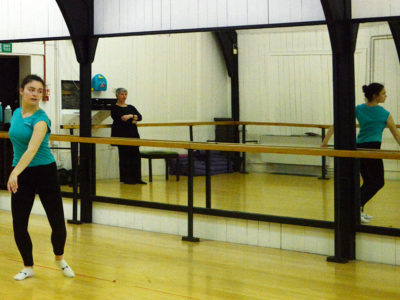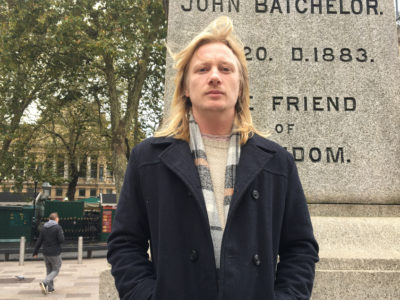FEATURE FOCUS:
Want to know more about the BBC Horizons Scheme and all it does for emerging Welsh artists? Check out this Q&A with Horizons Project Manager, Bethan Elfyn.
AUTO PLAY:
Listen to this year’s Horizons 12 artists here:
SUCCESS STORY:
One of the Horizons 12 bands, Peasant’s King, are currently touring India with Wales Art International. Check out their music on their YouTube channel:
COVER QUEEN:
Horizons 12 singer, Violet Skies, covers Ed Sheeran’s number 1 hit, Thinking Out Loud, on YouTube’s Reload Sessions:
Industry insiders call for more support for the Welsh music scene
From the melodic arias echoing over players’ bellows on the rugby pitch, to the much-loved rhythms of Shirley Bassey and Tom Jones, music is integral to Wales’ culture and heritage. With £95m generated by the Welsh music industry’s tourism sector last year alone, music plays a key role in pinning Wales on the map; but with significant cuts to government spending, is there enough support for the Welsh music industry?
Last year the Welsh music industry was dealt a massive blow as government funding for the Welsh Music Foundation (WMF), an organisation that helped emerging Welsh artists kickstart their career, was axed. A £160,000 annual grant helped the WMF carve the careers of many homegrown artists, like Cate Le Bon, over its 14-year span, but the funding cut forced the WMF’s closure triggering alarm bells for the industry’s future.

A collection of tweets taken from the day the WMF’s funding was axed – music lovers expressed their sadness at the industry’s closure.
Fast-forward to November 2015 and the scene tells a different story. An incredibly exciting month for the industry saw the seventh annual Swn Festival rocking the capital, the fifth Welsh Music Prize being awarded to Gwenno Saunders, and BBC Cymru Wales awarding 35 artists career-helping grants via the BBC Horizons’ Launchpad Fund. It seems the industry is thriving, despite the lack of government funding. But is this just a surface picture? Are cracks developing underneath?
A birdseye view of the industry
There are various support schemes available to emerging artists in Wales; perhaps the most prominent at present is the BBC Horizons Scheme. Founded in 2014 as part of a working partnership between BBC Radio Cymru and the Arts Council of Wales, the scheme supports specially selected up-and-coming artists.
Horizons’ project manager and BBC Radio Cymru presenter, Bethan Elfyn, explains how the scheme pushes artists to wider audiences through radio platforms and festivals, and provides an “injection of grants” through the Launchpad Fund. “A range of artists are selected, from complete unknowns to more established acts, but they all have a current drive, determination and momentum!” she enthused.

BBC Horizons singer, Aled Rheon, said that support schemes like Horizons and Swn Fest are a huge help for emerging artists
One chosen applicant is Aled Rheon. The Cardiff-based singer-songwriter was selected as a Horizons 12 singer last year and awarded a £2,000 Launchpad Fund grant last month. He feels the Horizons Scheme has been “invaluable” in facilitating his career and helping promote his first bilingual EP. “The Launchpad Fund will help pay for something I would definitely not have been able to afford myself,” he said. Listen to Aled’s music on his Soundcloud below.
Another driving force for rising Welsh musicians is Cardiff’s Swn Festival. Created by local music mogul John Rostron, alongside BBC Radio 1’s Huw Stephens, the festival is applauded for its role in showcasing new talent having won NME’s 2013 Award for Best Small Festival. “I’m very proud that Swn is such a successful platform for music,” John said.
Other schemes include Wales Art International, which promotes Welsh music abroad, the Welsh Music Prize, which highlights the best of current Welsh music, and the recent Forte Project, which aims to uncover ten stars from the Valleys.
On the surface there are waves of support for emerging Welsh talent, but with a lack of governmental backing those at the heart of the industry fear for its future.
Fears for the future
First, the number of organisations, whilst undeniably offering incredible support and opportunities, is extremely limited. There is only a handful available to emerging artists and even then they are quite disjointed and mainly South Wales focused. “You can count the schemes on one hand,” John said. “Surely this shows more backing is needed?”
Second, there is a lack of business advice and training. The WMF provided workshops in music copyright, promotion and festival organisation, and since its closure nothing has replaced it, despite government claims that they would provide a “creative industries information service”.
“Music’s not cheap. It’s usually the people who need funding the most that don’t get it.”
Third, and most crucially, very little money is being pumped into the industry with such a strong legacy in Wales. Last year only £33m of the government’s £15b budget went towards supporting the arts in Wales.
Industry professionals argue increased funding is vital to ensure a prosperous future. “There is not enough support,” John argued. “Swn Fest receives no funding from Cardiff Council or the government. It’s not sustainable.”
David Owens, Media Wales music journalist, also believes the industry’s future is unmaintainable without wider government backing: “The Welsh government likes to promote itself as the Land of Song, but unless it throws its full weight behind fostering Welsh music at grassroots level the next generation of stars will be lost, or at the very least they will find it incredibly difficult to progress.”

From the Morriston Orpheus Male Voice Choir to Tom Jones’ “Unusual”, music is central to Wales’ identity, but industry insiders want wider support
Is there enough support?
In a word, no. Industry insiders want more funding for schemes available to emerging artists, and a long-term solution that is inclusive of the whole of Wales to safeguard the industry’s future; especially as music is fundamental to the country’s economy and national identity.
“Unless something is put into place now there will be problems further along the line.”
In a statement regarding the provision of Welsh music services across last month, Education Minister, Huw Lewis, said: “I am committed to providing young people with opportunities to develop their musical talent.” A progress report on how these services are implemented amid spending cuts will be published on the Welsh government’s website next autumn.
“The wider picture is that the Welsh music scene is in an incredibly healthy place,” David explained. “This is purely down to those working within it. From the bands and record labels to the promoters and venues who operate in incredibly difficult circumstances, because first and foremost they love music.”
These calls for more support conflict with the industry’s current picture, but the central argument is that cracks are forming behind the scenes, and without wider support from authorities, the industry’s future, and its forthcoming Joneses and Basseys, are in jeopardy.
FEATURE FOCUS:
Want to know more about the BBC Horizons Scheme and all it does for emerging Welsh artists? Check out this Q&A with Horizons Project Manager, Bethan Elfyn.
AUTO PLAY:
Listen to this year’s Horizons 12 artists here:
SUCCESS STORY:
One of the Horizons 12 bands, Peasant’s King, are currently touring India with Wales Art International. Check out their music on their YouTube channel:
COVER QUEEN:
Horizons 12 singer, Violet Skies, covers Ed Sheeran’s number 1 hit, Thinking Out Loud, on YouTube’s Reload Sessions:




